My oldest, six years old, has started to understand how powerful the written word can be. I’ve been marveling at her acquisition of English as a second language and remembering my own acquisition. Still, when I saw a piece of paper on my table last summer, I was stunned. My grandmother, 91 years old at the time, was visiting us from Illinois. She and I have always had a very special relationship growing up; I stayed at her house so often that she was like a mother to me. Actually, she still is like a mother to me. She doesn’t sign other than homemade signs, although she says she wishes she did. She’s tried to learn many times, but has never really succeeded.
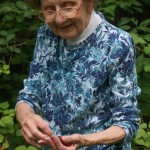 Grandmother learned my mother was deaf when Mom was three. Like so many others back then, she was told to teach my mother to speak instead of sign. I don’t think she ever imagined she’d be the lone hearing person in my family, my children being fourth-generation deaf on their father’s side. Whenever she’s at my house, she has never once complained when we all sign without including her—although I often feel guilty about that, and always try to have her know what we’re talking about. I remember asking her once at a restaurant when she was the only hearing person in a group of 11 how she felt being the only hearing person. She said, “I think it’s great.”
Grandmother learned my mother was deaf when Mom was three. Like so many others back then, she was told to teach my mother to speak instead of sign. I don’t think she ever imagined she’d be the lone hearing person in my family, my children being fourth-generation deaf on their father’s side. Whenever she’s at my house, she has never once complained when we all sign without including her—although I often feel guilty about that, and always try to have her know what we’re talking about. I remember asking her once at a restaurant when she was the only hearing person in a group of 11 how she felt being the only hearing person. She said, “I think it’s great.”
My children absolutely adore her for so many reasons, and they especially love her “spin” game where she spins the kids around by their legs on any smooth floor. It’s a sight you have to see to believe. The kids clamor for this game the very minute she enters the house, even as big as they are now.
So, last summer, I was cleaning and picking up random pieces of paper from tables and shelves and countertops. I took a second look at the blue piece of paper in front of me, because I recognized Grandmother’s handwriting. I also thought I recognized my writing, from when I was a child. I thought it was from my childhood. It wasn’t. 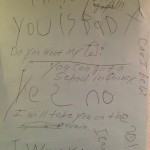
My heart warmed as I read it more carefully. It was a conversation my oldest had with Grandmother. I immediately reminisced about when I was six years old. My grandparents lived two hours away from me, and I spent practically every weekend and every break with them. I loved being at their house; it was the only stable home I had until I was much older. My best friend lived across the street from my grandparents’ house, and we made up all sorts of creative schemes. And Maid Rite! The best place to eat in Quincy, hands down.
Since my grandparents didn’t sign, and I didn’t speak, we had to find a way to communicate—especially when my mom wasn’t around to interpret. The answer was easy: we wrote back and forth. My granddad was a man of a few words, but full of mischief, which could be seen in how he wrote. My grandmother was always a wordsmith, the poet in the family. She and I would talk for hours. We’d watch THE PRICE IS RIGHT (which wasn’t captioned back then) when she was home from work, and she’d patiently explain the rules to me, or tell me what Bob Barker was saying. In fact, I credit this for much of my English acquisition, along with having ASL as a first language and reading.
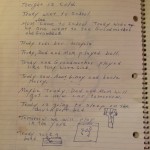 When Grandmother tucked me into bed, she would sit next to me and write in a notebook. She’d ask, using rudimentary gestures, “TRUDY TODAY WHAT?” (“What did Trudy do today?”) I’d tell her what I did, and she’d make me fingerspell the words one by one, or she’d write the sentences out and make me read them. It was my all-time favorite activity with my grandmother. Today, the notebooks are my most cherished documentation of my relationship with her. She was the best at doodling next to the sentences, even though she scoffs when I tell her that her drawing skills are awesome. She still doodles on her cards and letters to me, which I get such a kick out of.
When Grandmother tucked me into bed, she would sit next to me and write in a notebook. She’d ask, using rudimentary gestures, “TRUDY TODAY WHAT?” (“What did Trudy do today?”) I’d tell her what I did, and she’d make me fingerspell the words one by one, or she’d write the sentences out and make me read them. It was my all-time favorite activity with my grandmother. Today, the notebooks are my most cherished documentation of my relationship with her. She was the best at doodling next to the sentences, even though she scoffs when I tell her that her drawing skills are awesome. She still doodles on her cards and letters to me, which I get such a kick out of.
Happy 92nd birthday, Grandmother. Thank you for the loving and lasting impact you’ve left not only on me, but on your great-grandchildren as well.
Copyrighted material, used by permission. This article can not be copied, reproduced, or redistributed without the written consent of the author.

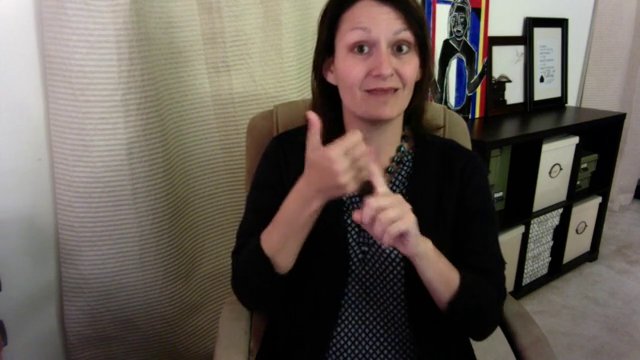

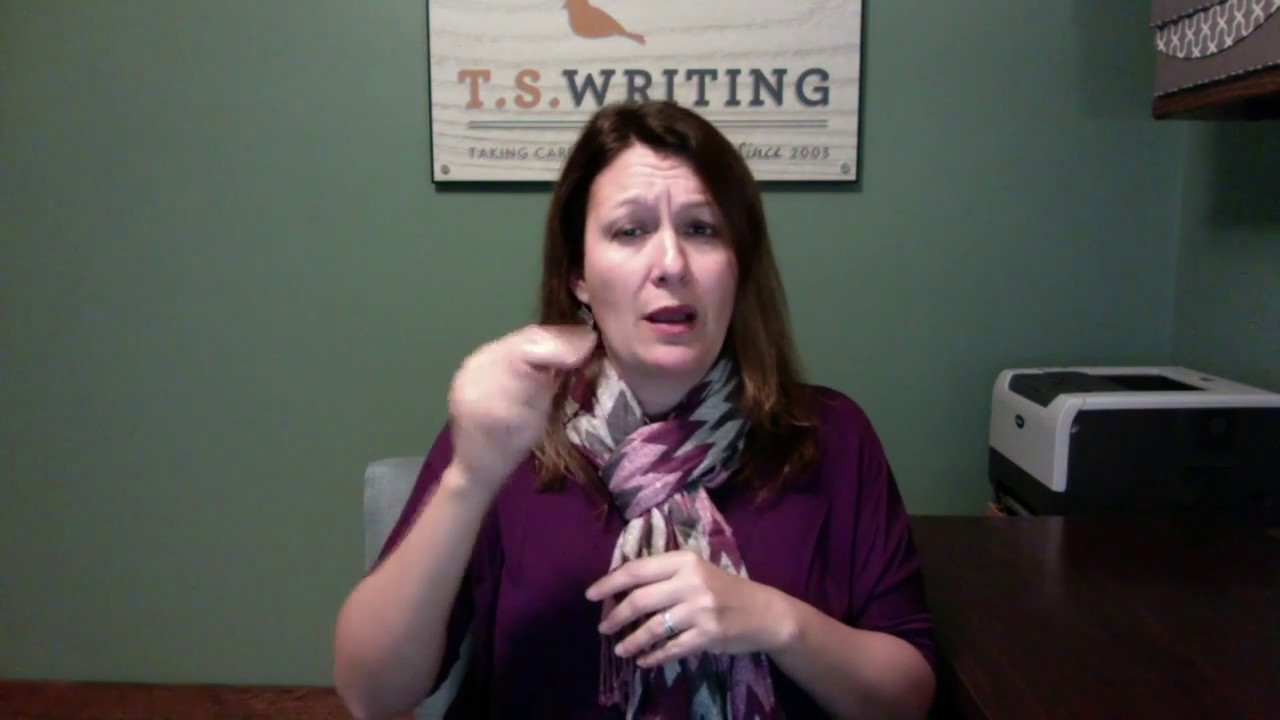
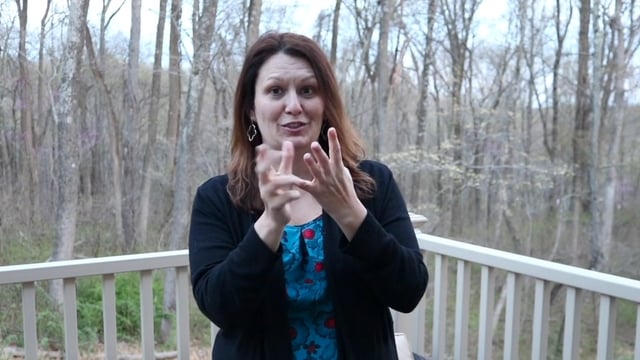
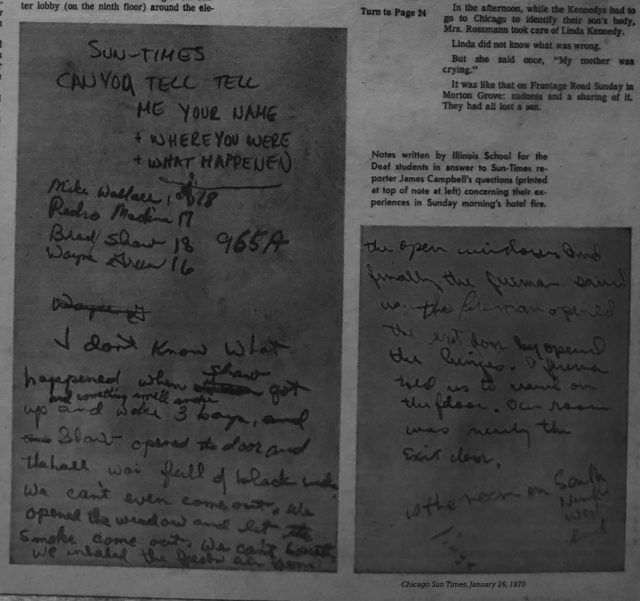
What a lovely story! What a beautiful relationship. Thank you for sharing this!
Trudy, I enjoyed reading this story and thanks for sharing a copy of what your grandmother wrote when you were little! What a treasure! My mom did the same thing with me when I was young. I think that writing regularly about our day together was one of the biggest influences on my written language acquisition.